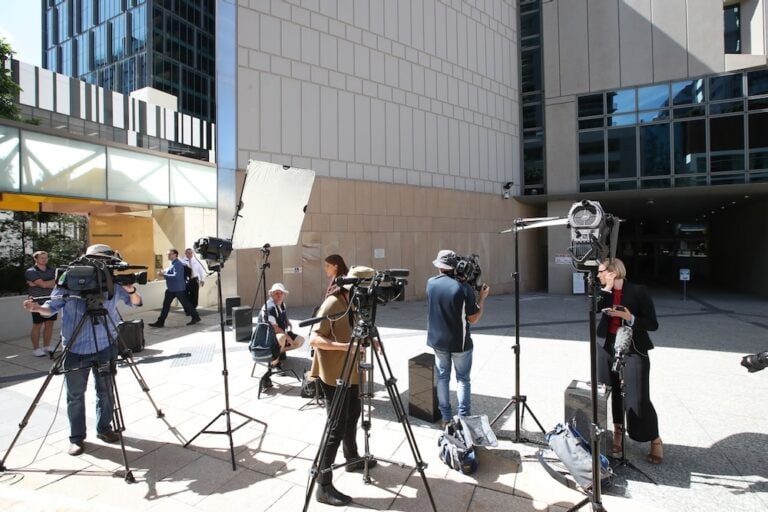(MEAA/IFEX) – The following is a MEAA media release: Phone tap laws in Australia threaten press freedom If federal government plans to give its security agencies new phone-tapping powers are accepted, journalists must assume that their conversations with sources will be intercepted, says Australia’s media union. This excessive threat to press freedom will not only […]
(MEAA/IFEX) – The following is a MEAA media release:
Phone tap laws in Australia threaten press freedom
If federal government plans to give its security agencies new phone-tapping powers are accepted, journalists must assume that their conversations with sources will be intercepted, says Australia’s media union. This excessive threat to press freedom will not only deter confidential sources but may also lead to a culture of self censorship.
The legislation to be introduced into Parliament today allows spies, police and other security agencies to not only tap the phones of third parties to suspected terrorist plots, but also intercept emails, SMS and monitor mobile calls.
“What is particularly concerning about this legislation is that anyone who interacts with the suspects of serious crime – not those proven guilty – can come under surveillance. The rights of innocent third parties is jeopardised by this excessive and invasive proposal,” said Media, Entertainment & Arts Alliance federal secretary Christopher Warren.
For journalists who cover politics, crime or security issues, these laws pose a particular threat to their work. At any time police could be listening to their conversations, obliterating any professional right the journalist has to protect the confidentiality of his source.
“Without public faith in the journalists’ promise to protect sources, much crucial information in the public interest would not come to light,” said Warren.
“The government’s attempt to destroy this trust will result in fewer people speaking out and a public left with nothing but government spin and other media stunts.”
The government already has powers under the Telecommunications (Interception) Amendment (Stored Communications) Act 2004 to obtain a warrant to access stored communications, including SMS, MMS (multimedia message), email and voicemail messages. That in itself poses a threat to the anonymity of journalists’ sources.
“This new law, like the recently enacted anti-terror laws, is unnecessary given the legislation already in place to gather evidence in relation to crime suspects. There is no reason to take that a step further and inhibit civil rights and press freedom,” said Warren.
“More than ever we rely on our media to provide the public with clear and accurate information to engage in public debate. It is our democratic right to do so. It seems the government is intent to listen in on our conversations but it could be asked: are they actually listening?”
For more information contact Christopher Warren on tel. + 0411 757 668, e-mail: robert.shaw@ifj.org.
The Media Alliance represents more than 10,000 journalists across Australia.


